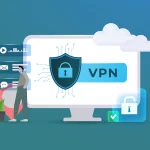UPD UK ISPs Slam Ofcom for Underestimating Cost of Internet Piracy Letters
Several of the UK’s largest broadband providers have warned that the communications regulator, Ofcom, has “understated” the cost of enforcing its new online copyright infringement code of practice, which is designed to tackle internet piracy among ISP customers.
The code describes how and when the country’s biggest ISPs (i.e. BT [PlusNet], Orange UK / T-Mobile [EE], O2, Sky Broadband, TalkTalk and Virgin Media) should issue Notifications Letters (warning messages) about the detection of unlawful activity on a related customers account.
Advertisement
Crucially Rights Holders are expected bear all of the costs incurred by Ofcom, the majority of costs incurred by the appeals body and 75% of the costs “efficiently and reasonably incurred by Qualifying ISPs in carrying out their obligations“. But ISPs still have to pay 25% of their Relevant Costs and 25% of the Case Fees for handling the process, which is what Ofcom’s related Cost Order Consultation was intended to finalise.
The consultation closed on 18th September 2012 and Ofcom has now published its various responses, which includes a number of frustrated replies from ISPs. For example, TalkTalk appeared to be extremely frustrated at Ofcom’s decision not to include the effect of Churn Costs (money lost as total customer numbers shrink) as a “Relevant Cost“. Including this would of course have been of benefit to TalkTalk, which has a lot of experience with declining subscriber numbers. Meanwhile BT had broader concerns.
BT’s Response said:
“Ofcom needs to take full account of the evidence put forward in this response about our expected level of efficient costs and understand why these are higher than the levels set out in the consultation. … we believe that Ofcom’s current view of the key “operational ratios” would significantly understate reality.
We are also concerned that Ofcom seems to consider that the Costs Order would – if approved in current form – place a fairly rigid constraint on how ISPs’ costs would be recovered … In fact, the draft Costs Order simply requires that Ofcom “shall have regard to the desirability of…” setting fees to recover 75% of costs.”
Everything Everywhere (EE), which also represents T-Mobile and Orange UK, appeared to echo BT’s concerns and similarly called for Ofcom to reconsider some of its assumptions. It is of course quite normal for ISPs to challenge any calculations that could put them at a financial disadvantage. Indeed there are so many unknowns with the costing of Ofcom’s new code that neither the providers nor the regulator itself can be entirely sure of the outcome.
For example, BT references the potential impact upon call centres. Ofcom has estimated that 15% of notifications will generate helpdesk calls, which BT describes as being “far too low“. We can easily understand how anybody who receives such a letter might well feel a more pressing desire to call their ISP directly but that means taking a call that might have otherwise been used for technical support. It all gets very complicated, very quickly.
Advertisement
Little wonder then that the first notification letters aren’t even expected to be sent until early 2014.
Ofcoms Cost Order Consultation Responses
http://stakeholders.ofcom.org.uk/consultations/infringement-implementation/…
UPDATE 1:08pm
The Open Rights Group (ORG) notes that the government has cancelled Monday’s Lords discussion on the Costs Order, which is perhaps unsurprising given the consultation closure and its responses.
Jim Killock, Executive Director of the ORG, said:
“The Digital Economy Act is unfair and a mess. The Costs Order tries to discourage people from filing appeals, by charging them a “refundable” £20. The fees will impose greater costs on some ISPs than others, and some of the costs may not be recoverable. Those costs will be passed on to customers.
Digital music in the UK is growing faster than in France, where HADOPI is operational. The Act is pointless and dangerous: it’s time for a rethink.”
Mark is a professional technology writer, IT consultant and computer engineer from Dorset (England), he also founded ISPreview in 1999 and enjoys analysing the latest telecoms and broadband developments. Find me on X (Twitter), Mastodon, Facebook, BlueSky, Threads.net and Linkedin.
« Witherslack Village Joins Vodafone UK Open Femto Mobile Broadband Trial
Wales UK Given GBP20 Million Broadband Funding Boost »

















































Comments are closed